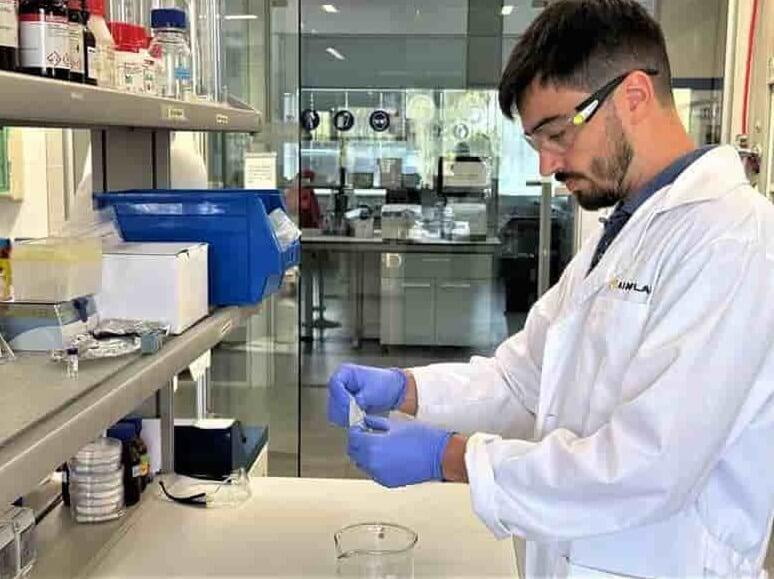August 23, 2023 - The European BioICEP project, led by Spanish plastics technology center AIMPLAS, has made significant progress.
AIMPLAS converts synthetic plastics into biodegradable bioplastics through a microwave and reactive extrusion based approach, a result that holds great promise for the packaging and pharmaceutical industries in providing a sustainable solution to plastic waste. This involves the application of microwave-assisted thermochemical degradation, which reportedly converts fossil-based plastic waste into natural, biodegradable alternatives and accelerates the biodegradation of conventional plastics, which is said to be completely degraded in less than 28 days.

AIMPLAS explained that depolymerization of polyamides is another technique used to reduce polymers to their original monomers, which can then be degraded by microorganisms and converted into bioplastics and other products of interest. Reactive extrusion has also been used to change the structure of polymer chains and improve their biodegradability.
This work is part of AIMPLAS' participation in the BioInnovation for the Plastics Circular Economy or BioICEP project. Established in February 2020 and funded by the Horizon 2020 program, the project aims to develop environmentally friendly and sustainable alternatives to petroleum-based plastics.
In this project, AIMPLAS is the coordinator in charge of communication activities and dissemination and utilization of the results.
BioICEP's recommended solution for reducing plastic waste in the environment is a three-step sequential process. The first step involves chemical decomposition, using new microwave-based techniques to reduce the molecular weight of the base polymer and thus improve biodegradability. The second step, biocatalytic digestion, integrates improved enzymes through techniques such as fluorescent sensor screening and directed evolution. Finally, the third step utilizes microbial communities from top single microbial strains that strategically combine to effectively degrade mixed plastic waste streams. The end product will be used to produce new polymers and bioproducts, theoretically pioneering a circular economy for plastic waste.

